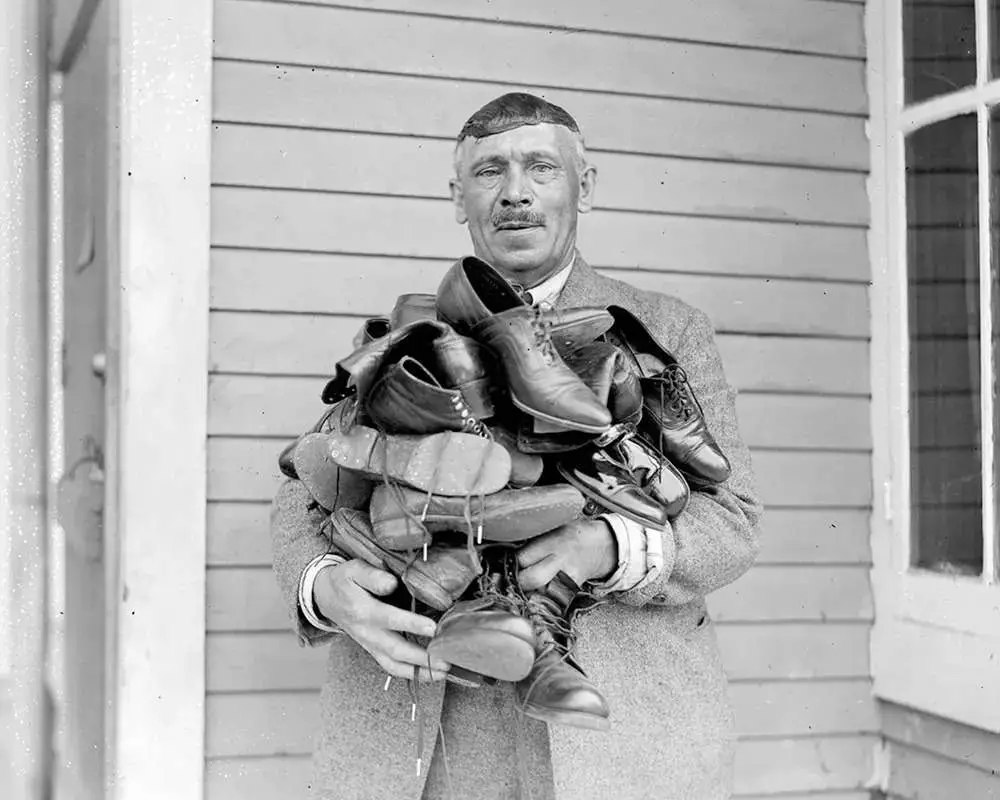The 1920s were a fascinating time in American history, full of jazz, flappers, prohibition, and gangsters. During this era, family dynamics changed significantly, with smaller nuclear families becoming the norm.
However, the Noonan family of Lawrence, Massachusetts, defied this trend with 13 children. Raising so many kids was a unique challenge, and the Noonan family had to make specific adaptations to manage their large household.
Their remarkable size gained local attention in 1925 when the average family had only 2.3 children. Scroll down to meet this extraordinary family.
Photographic documentation by Leslie Jones
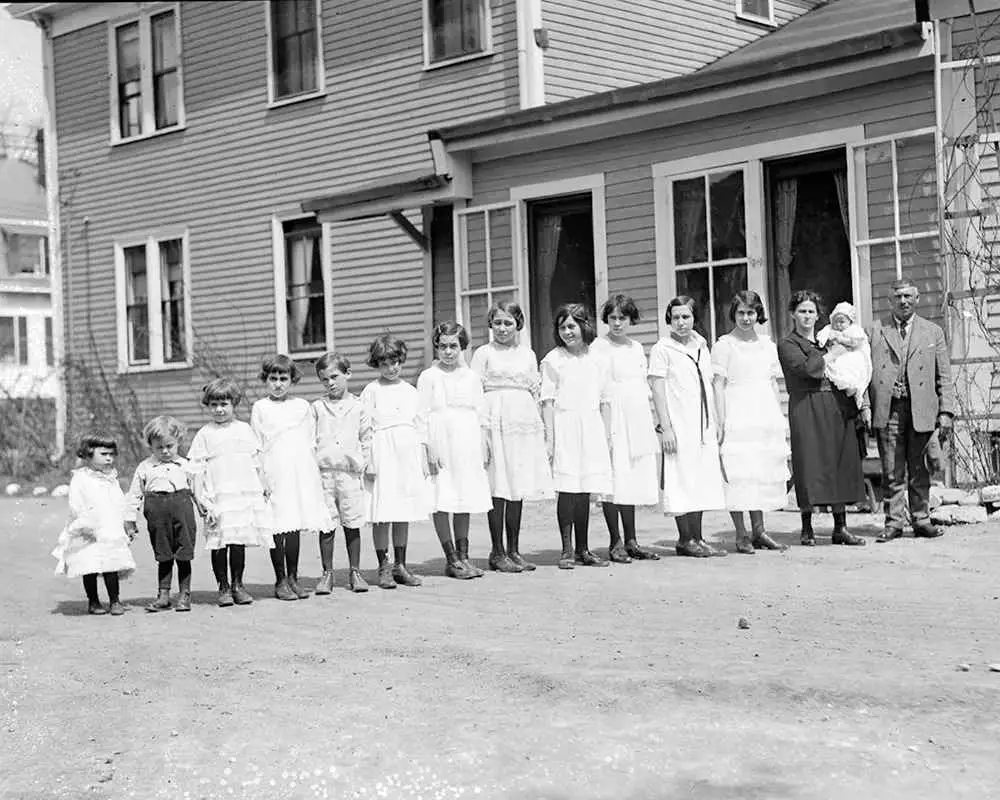
Leslie Jones, who worked for the Boston Herald-Traveler from 1917 to 1956, was known for his slice-of-life stories and major events like Charles Lindbergh’s tour after his transatlantic flight.
Their large family was so unique that Jones visited their home to document scenes of the family. Jones’ images portray the large family in detail, from the older teenage daughters to the newborn.
Jones’ photos showed the family of 15, including 10 girls, two boys, and a baby, engaging in routines like shoe polishing and squeezing into a single car. These images highlighted the enduring love of families and how times have changed.
Details on the Noonans
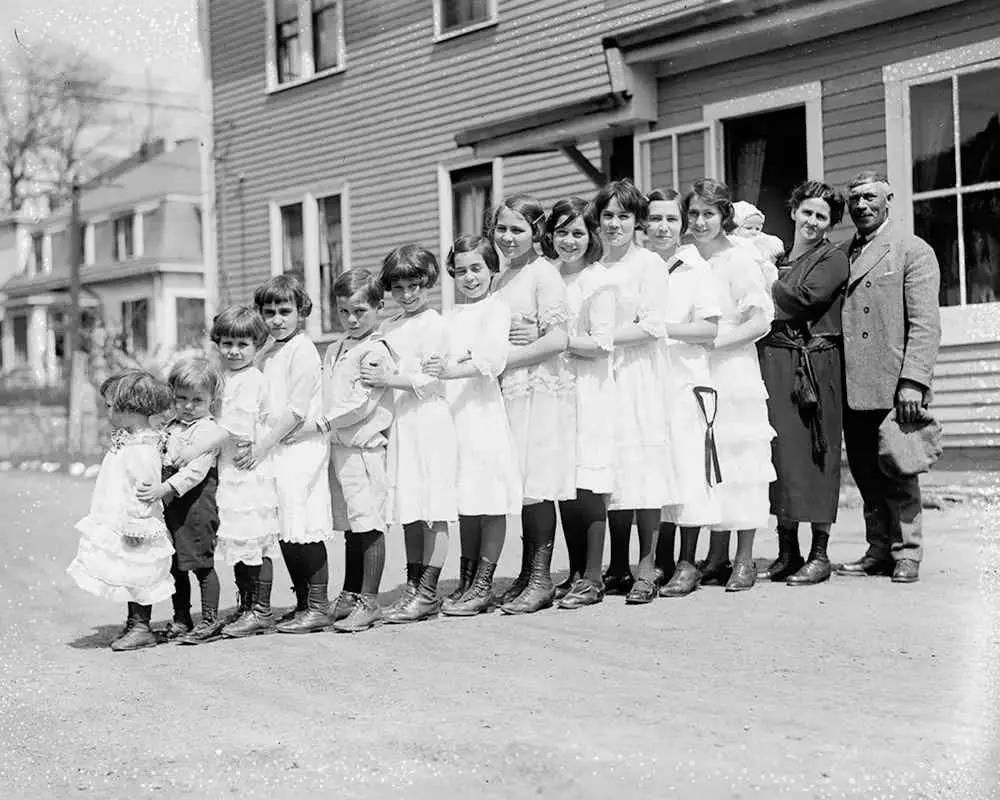
Maurice Noonan, an Irish immigrant and pub owner, and his wife Mabel were proud parents to 13 children in the 1920s. They were like the Gilbreth family from “Cheaper By The Dozen.”
The family included 10 daughters, two sons, and a baby whose gender is unknown from the photos. The eldest children were teenagers, and the youngest, aside from the baby, appeared to be about 4.
Managing such a large family likely involved a lot of sharing, hard work, and hand-me-down clothes, but they seemed to make it work. Polishing everyone’s shoes was no small task, but the family had a system.
Recently, some of Maurice and Mabel’s grandchildren identified the family photos circulating online. They shared the tragic news that Mabel and their youngest child died about four years after these photos were taken, leaving Maurice to raise the remaining 12 children alone.
Historical context
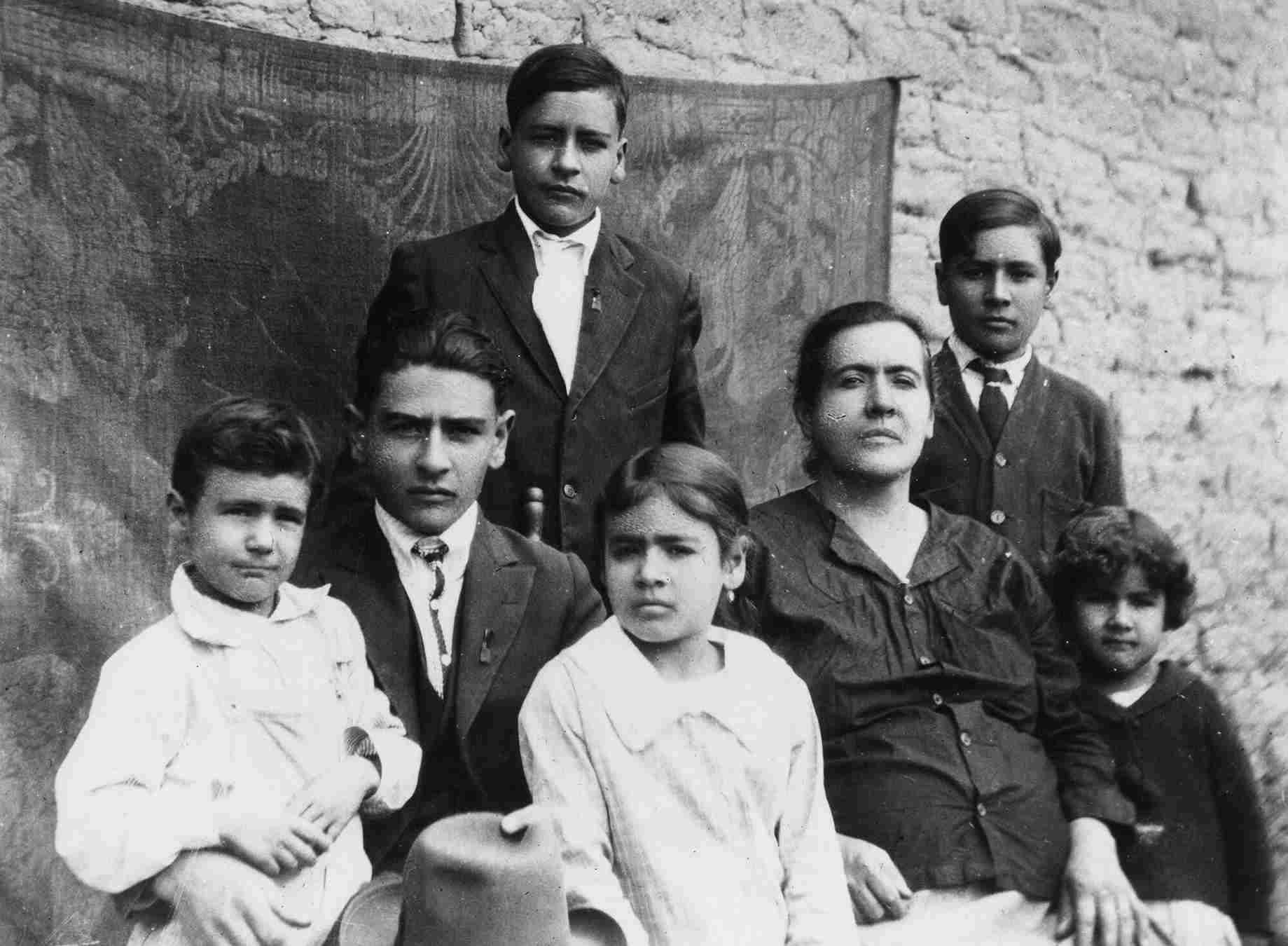
In the early 19th century, American women typically had seven to eight children, and life expectancy was under 40 years. America’s fertility transition began earlier than in other Western countries, starting in the late 18th or early 19th century, except for France, which also saw an early decline.
Unlike the usual pattern where mortality rates dropped before fertility rates, America’s fertility rate declined first, beginning a sustained decrease well before mortality rates improved around the 1870s. High immigration and population shifts to frontiers, cities, and suburbs influenced this trend.
From the 1950s to 1999, the U.S. saw significant changes in fertility rates. Post-World War II, the rate peaked at 3.8 children per woman in the late 1950s, dropped below replacement levels in the early 70s, and stabilized at around two children by 1999.
Currently, native-born Americans have a below-replacement fertility rate, while immigrant families have higher rates. However, by the second generation, immigrant fertility rates tend to decline, aligning with better education and income.
Photos of the Noonan family
Check out some more awesome photos, and if you know who this family is, let us know!
1. Mabel with the children
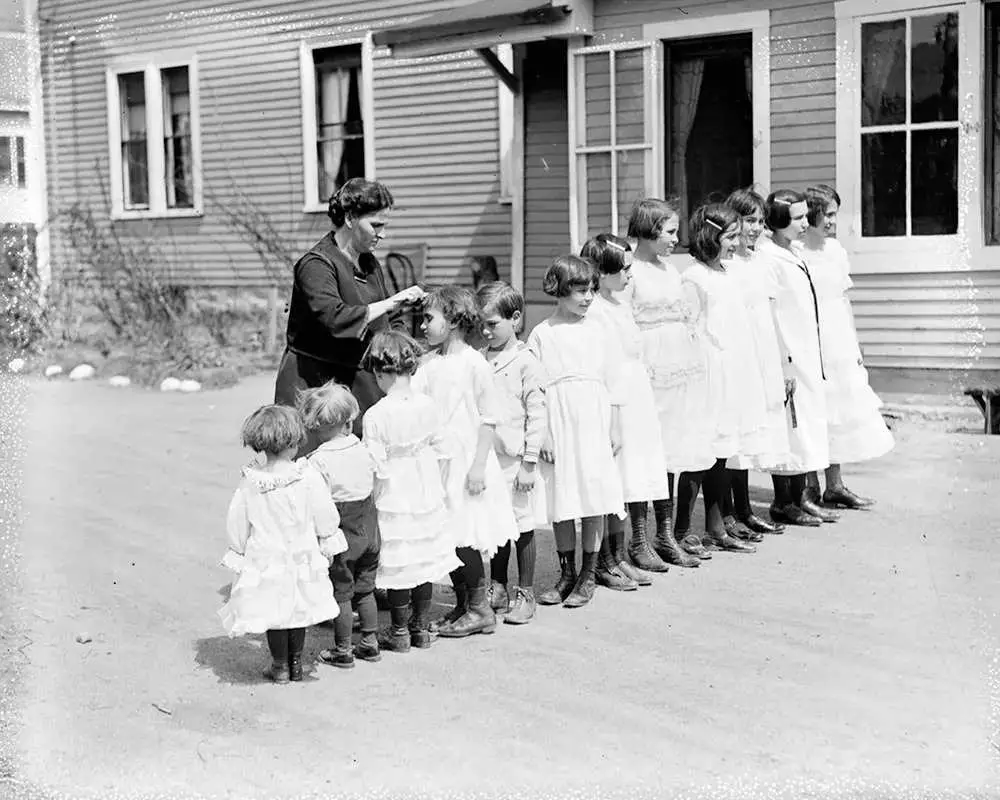
2. The whole family from behind
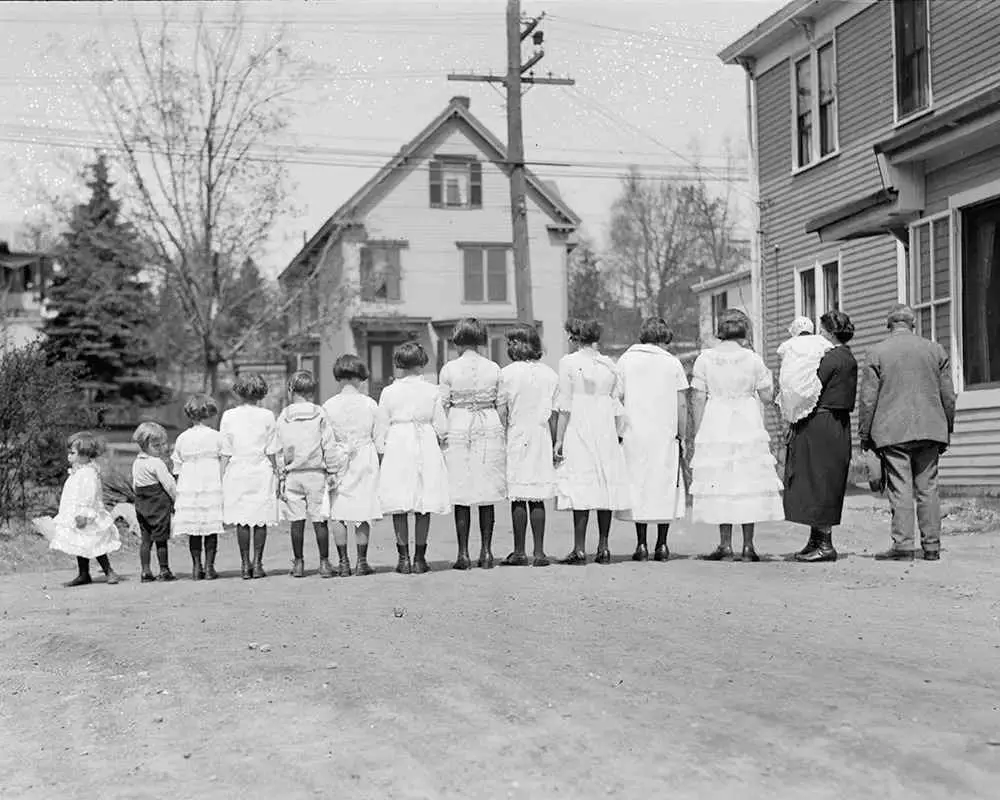
3. Large family standing in a line outside
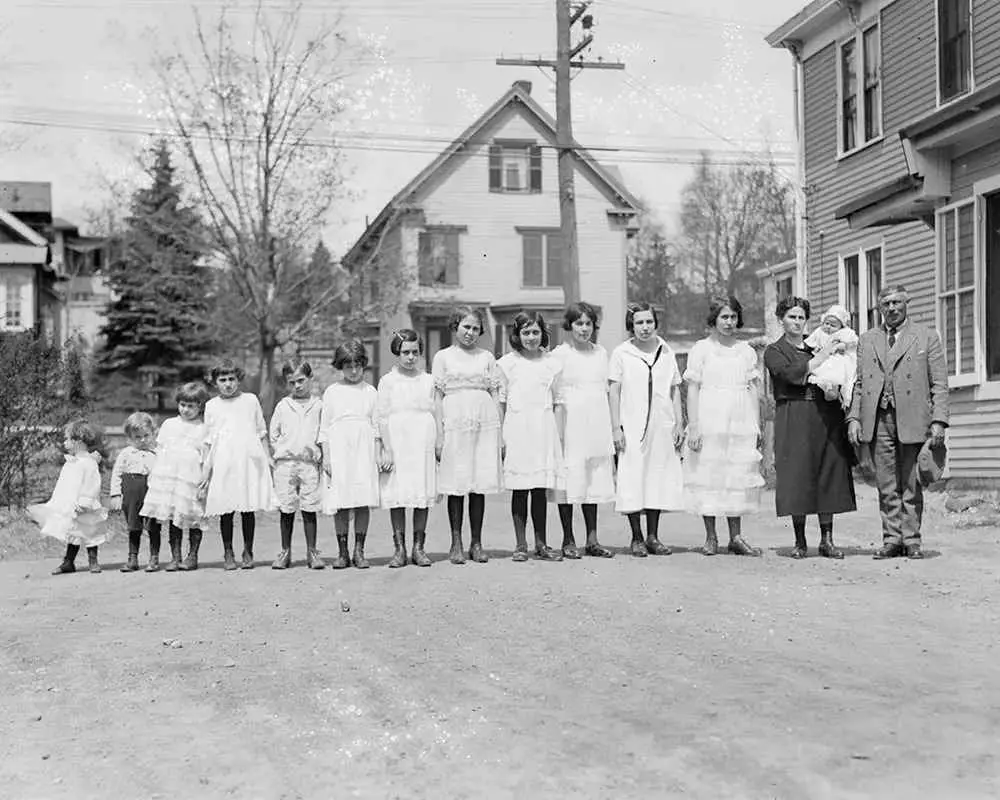
4. Packing into an automobile
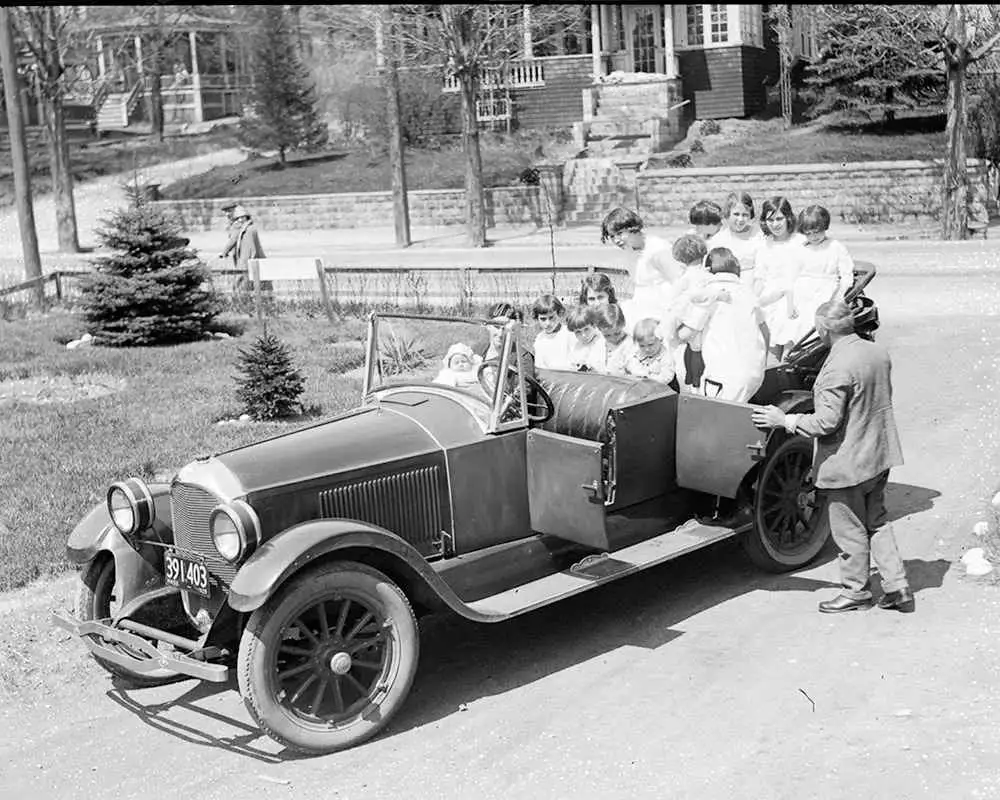
5. Joyful members sitting on the open-top car
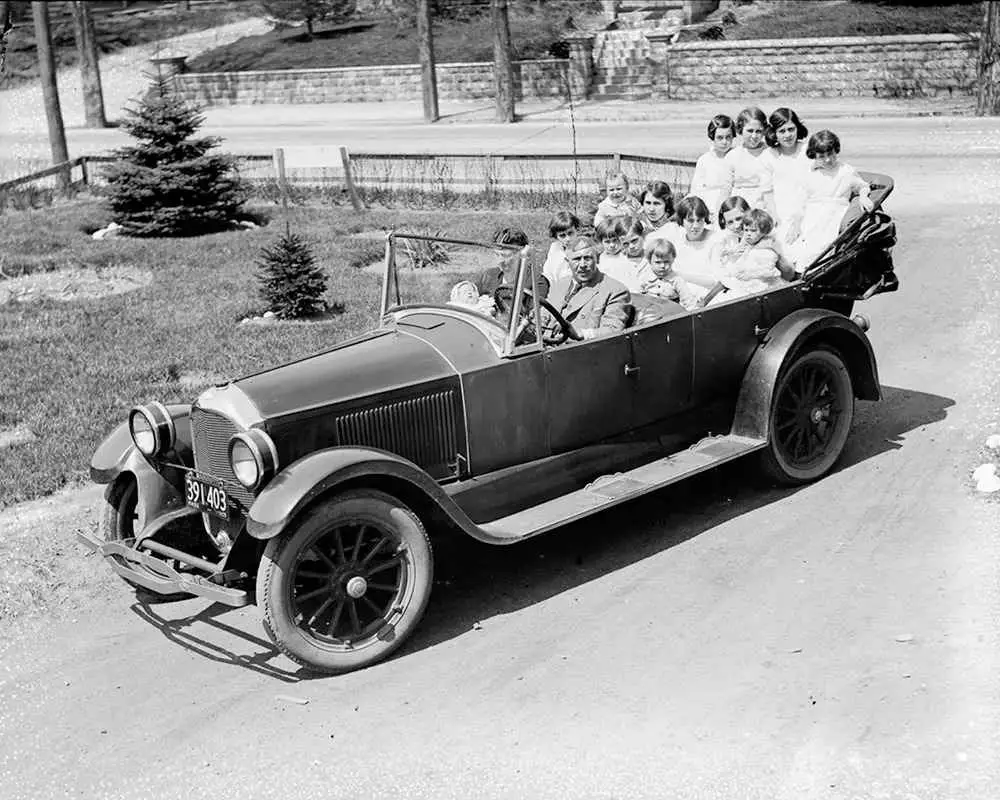
6. Children lined up according to their height
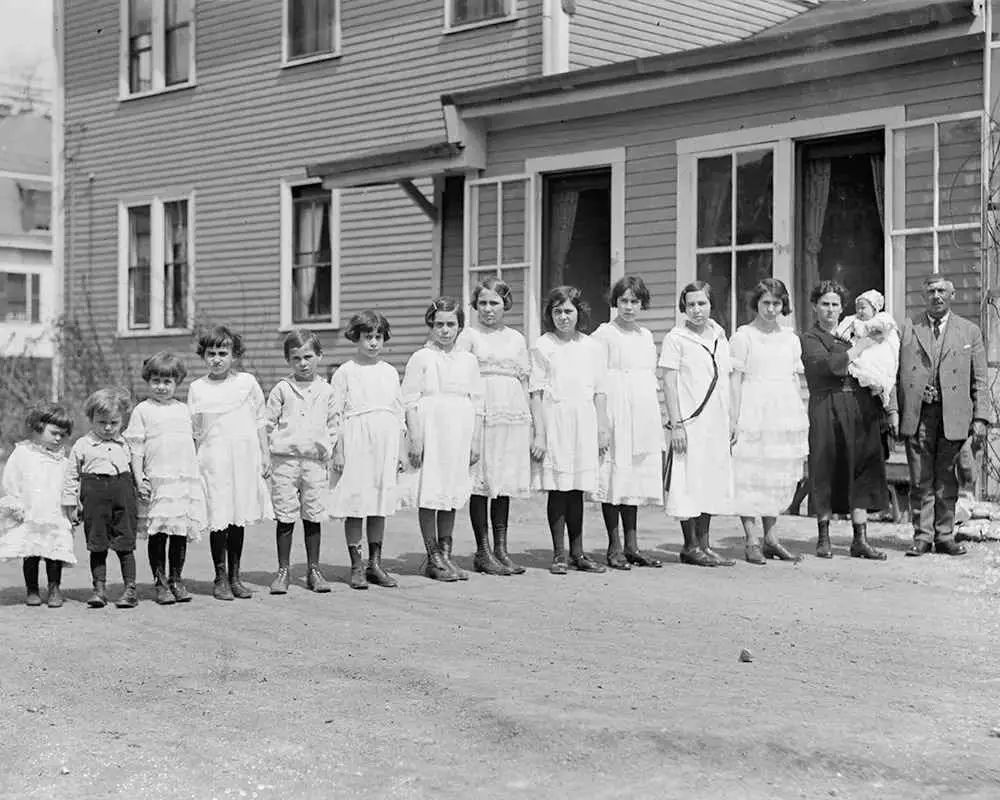
7. Standing in a playful, linked formation outside their home
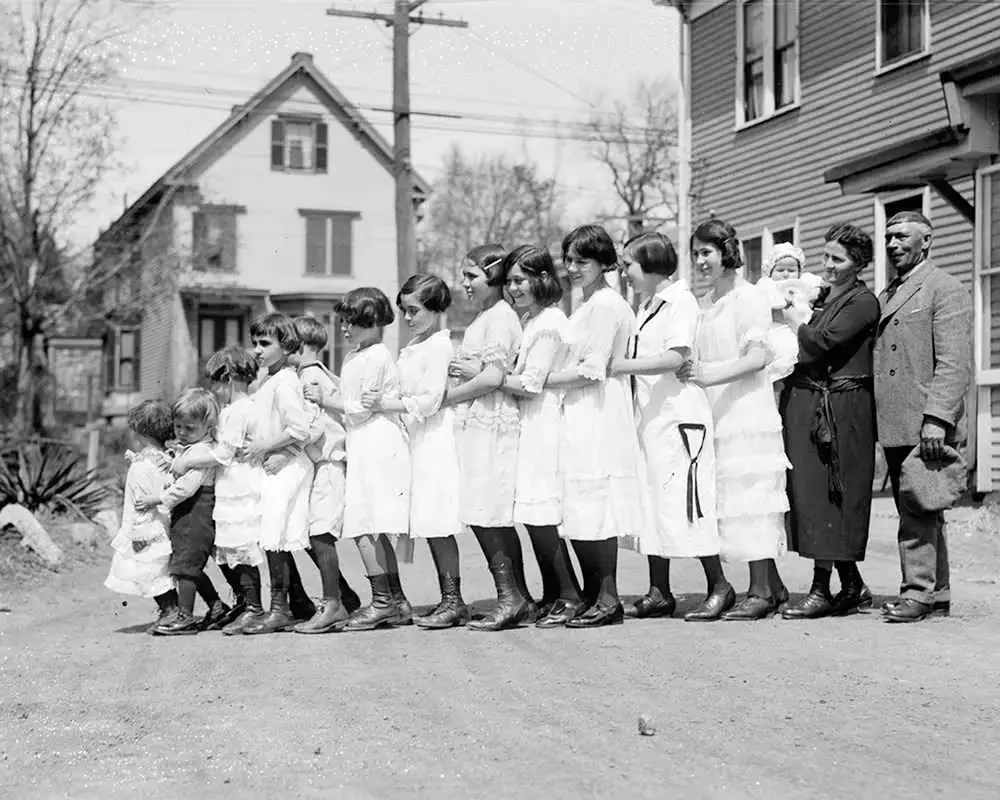
8. Maurice Noonan and his wife Mabel with their youngest newborn
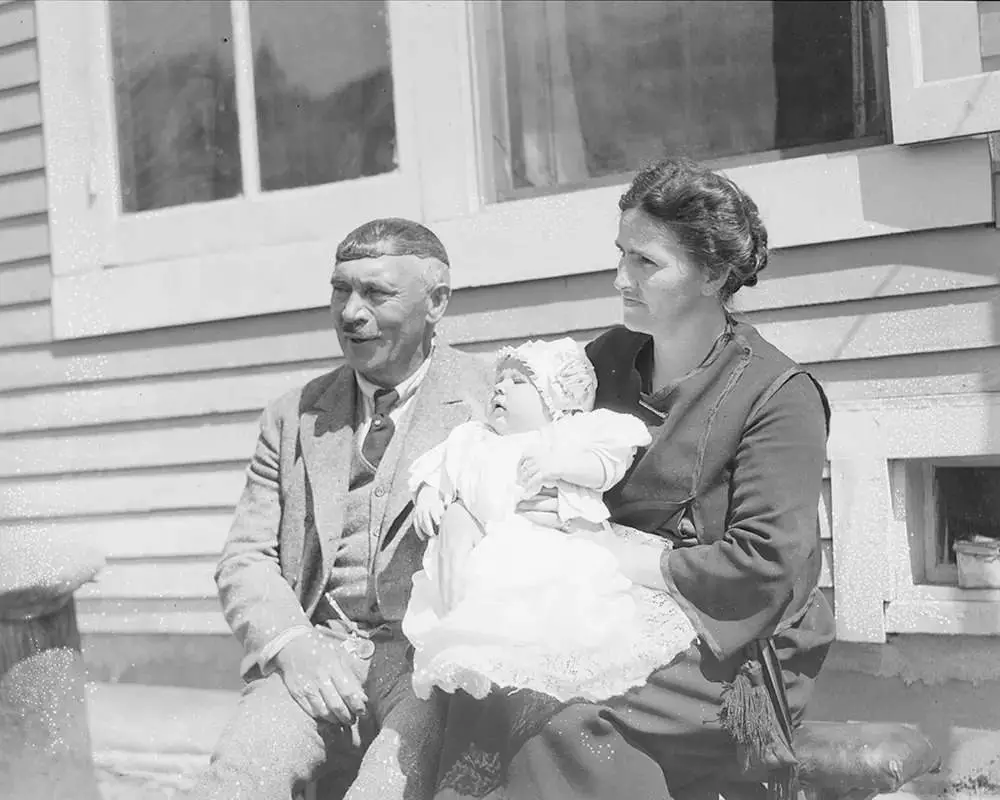
9. Family under an umbrella
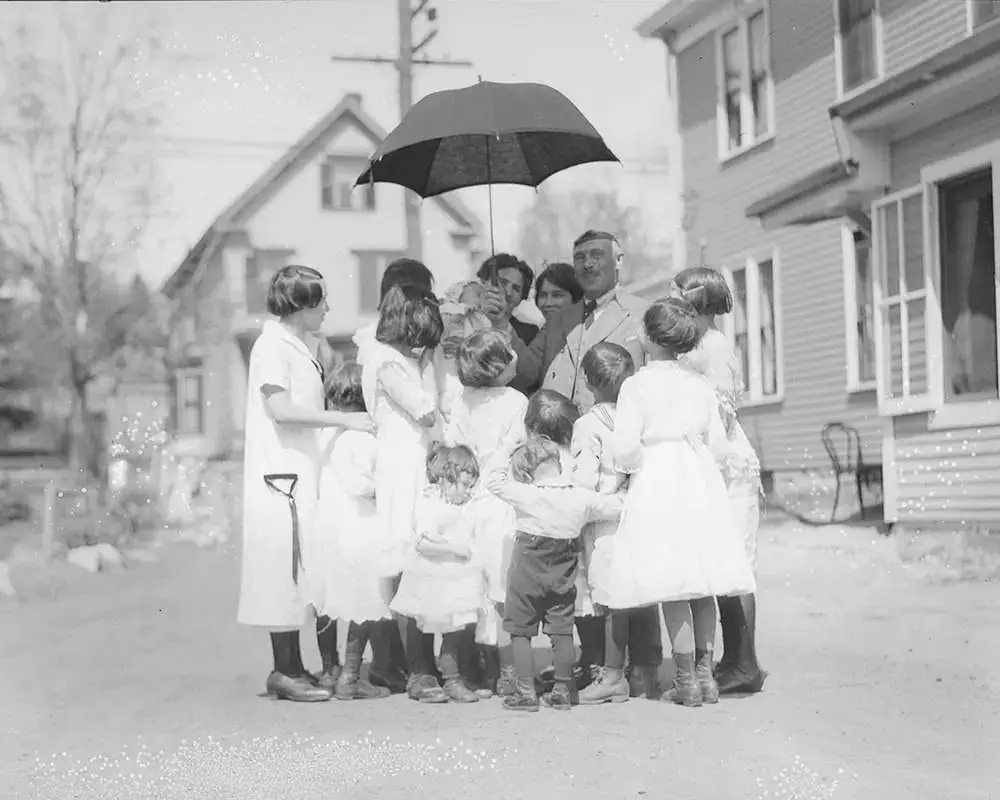
10. Large family gathered closely together
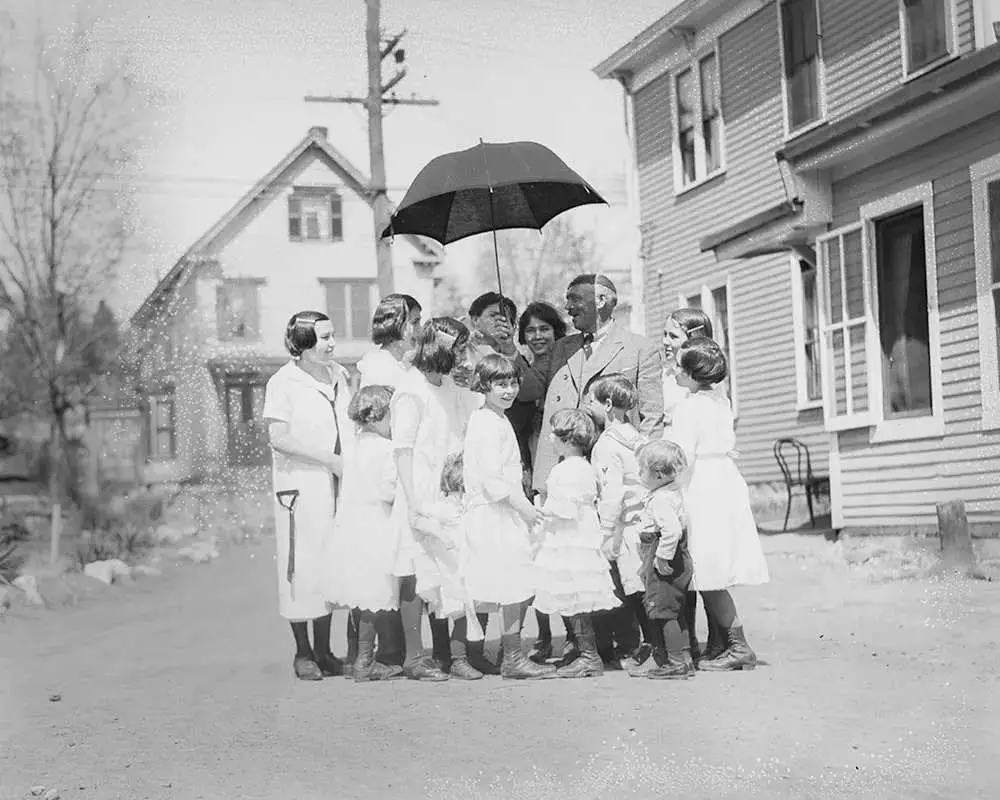
11. Kids neatly arranged from shortest to tallest
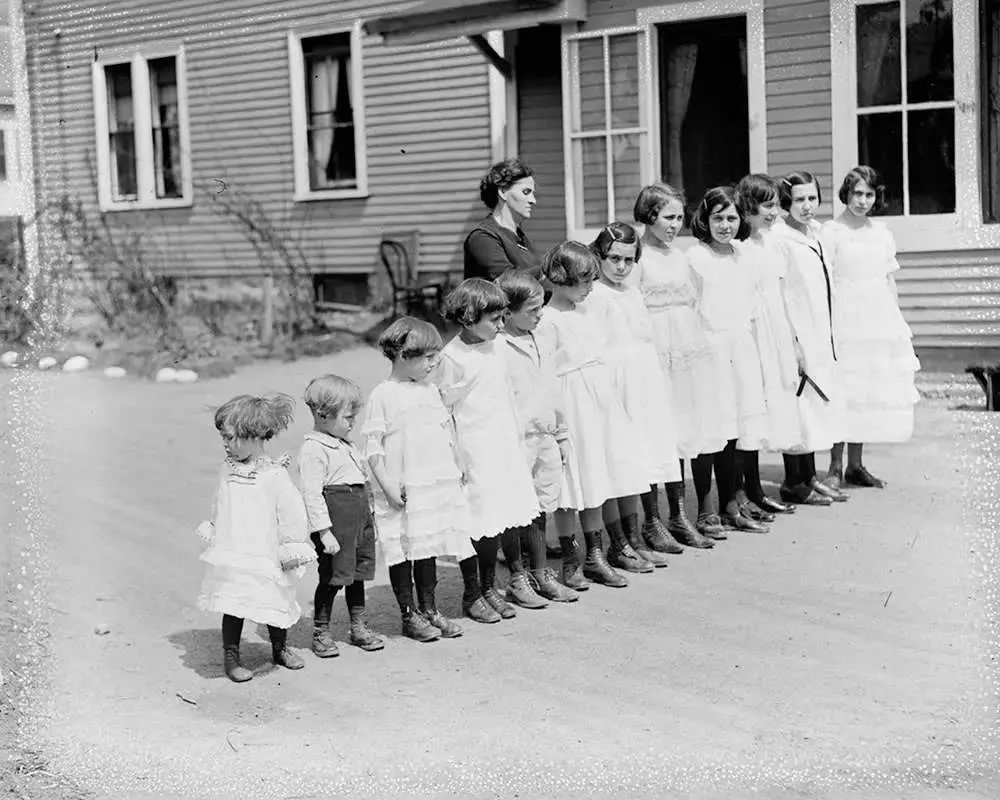
12. Children’s shoes arranged on a long wooden plank
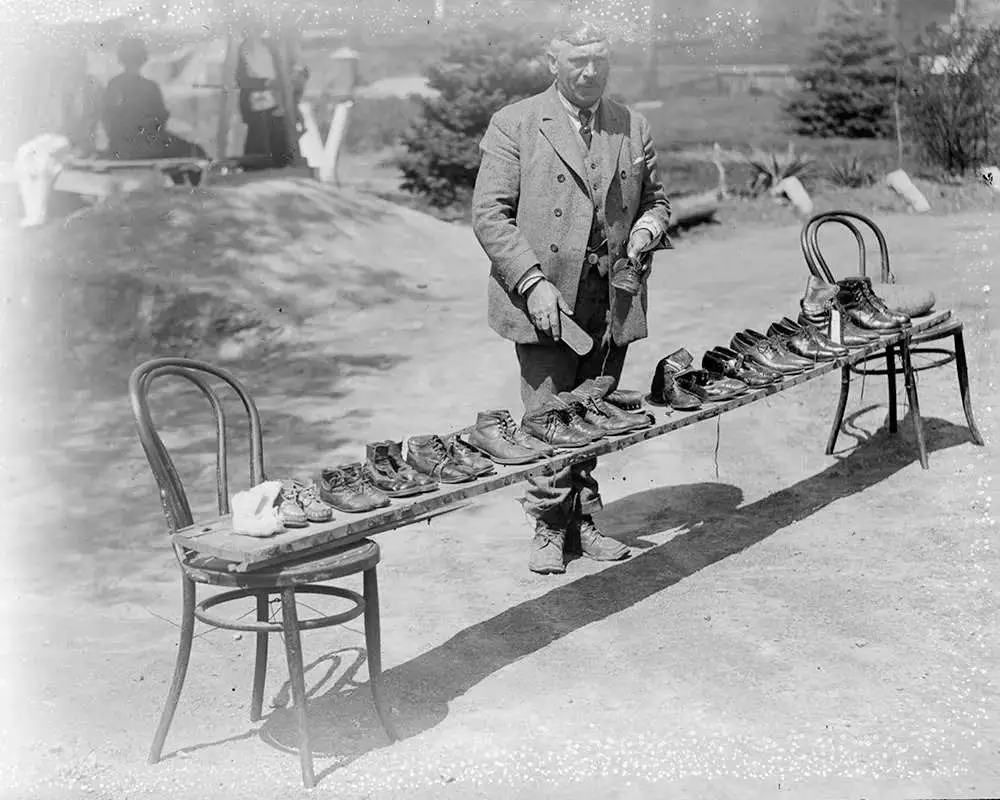
13. The father carefully polishing one of the shoes
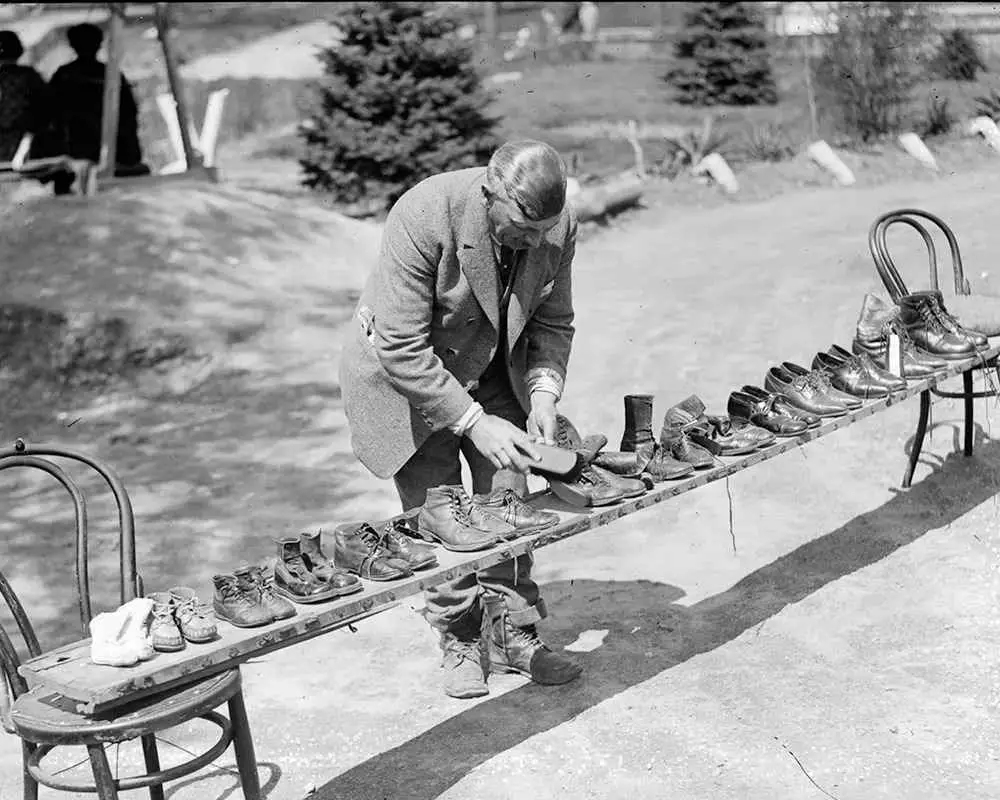
14. The couple’s expressions reflect pride and contentment
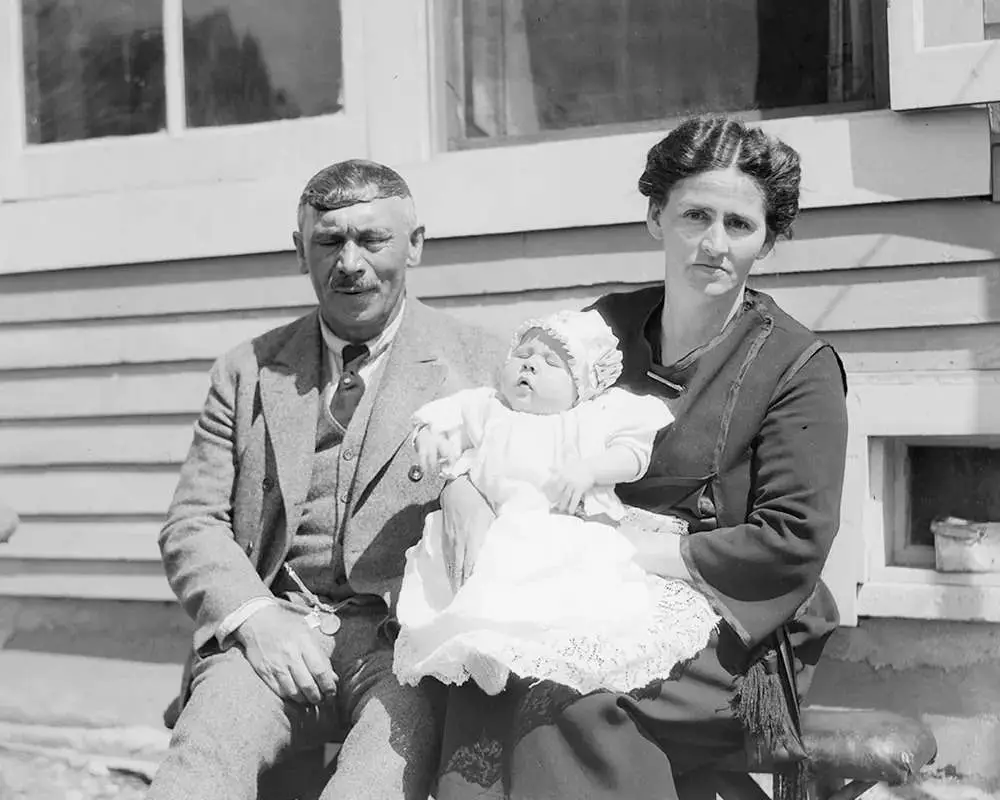
15. Father’s fortune, a touch of humor and warmth
